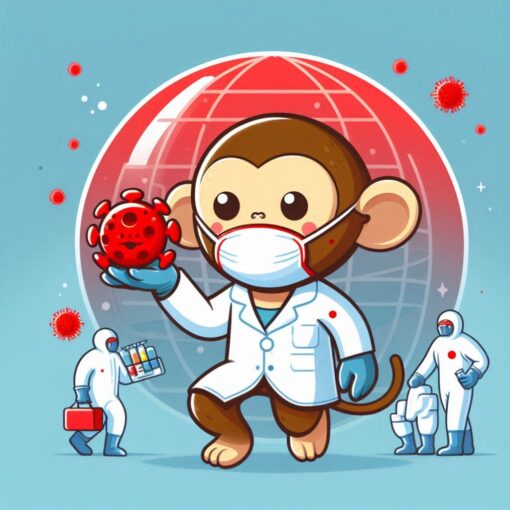Top Takeaways and Key Concepts
- Recognize supply chain weaknesses caused by disasters, politics, or factory shutdowns to plan ahead.
- Stock up on long-lasting essentials like rice, canned goods, and pasta to avoid shortages.
- Rotate stored supplies regularly to prevent waste and ensure freshness during emergencies.
- Build local connections with farmers, small shops, and neighbors for reliable backup resources.
- Diversify where you buy supplies and stay informed about shortages to adapt quickly.
Summary of This Article
This article explains how supply chain disruptions can affect everyday life, causing shortages of essentials like food, medicine, and household items. It highlights common weak points in the supply chain—such as natural disasters or global events—and how they create panic buying and stress. To stay prepared, the article encourages stocking up smartly on shelf-stable goods, rotating supplies, and building connections with local farmers and small businesses for stronger community support. It also recommends diversifying supply sources and staying informed to avoid being caught off guard by sudden shortages. With simple planning and awareness, anyone can stay ahead of supply chain problems.
Short Video Version of this Article
Think of a huge rubber band that goes from factories in China to your neighborhood grocery store when you think about supply chains. It’s kind of cool, isn’t it? But what if the rubber band breaks? All of a sudden, the shelves are empty and people are fighting over the final can of baked beans like it’s a crazy Black Friday deal. Oh no!
When you walk into a store and notice stuff missing, it can be really stressful. You might grab that final box of cereal like it’s worth a lot of money! Everyone wants to know what’s going on with the supply chains. It helps to know why some things are hard to find.
Please Note: This post may contain affiliate links. If you click one of them, we may receive a commission at no extra cost to you. As an Amazon Associate, I earn from qualifying purchases.

It’s very helpful to know about these problems in the supply chain. You don’t want to be surprised when your favorite foods go missing. It can make all the difference to plan ahead. You may buy a couple additional cans or look for other things you like.
Think of it as getting ready for an unexpected trip to the store. No one wants to go on the show “Survivor: Grocery Store Edition.” That sounds like a lot of work! So watch out for those adjustments and stay ahead of the game. Knowing that you’re ready for whatever that comes your way will make you feel better.
What Are Weak Spots in the Supply Chain?
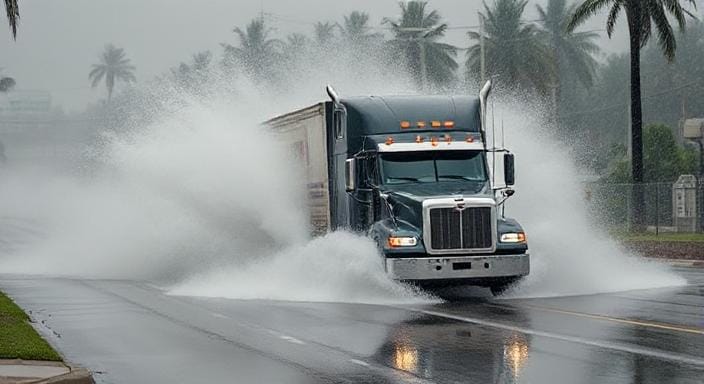
Let’s take a closer look at it. Weak points in the supply chain are like small bumps that might make things not move smoothly from point A to point B. Think about playing Jenga. If you make one mistake, everything could fall apart.
It might be anything, like a natural disaster. For example, hurricane season springs to mind. Or even political fights, because nothing screams “I love you” like trade wars getting in the way.
Isn’t it crazy how interrelated everything is? As a kid, my biggest anxiety was whether or not my favorite cereal would be on sale. It feels different now. I think of factories that are far away shutting down for a lot of different reasons. There might not be any toilet paper on the shelf all of a sudden! Who would have thought life could be so hard?
We used to merely take what we needed without thinking about it. We need to pay attention to all the significant things that are going on right now. Sometimes it can be too much to handle. But knowing this material helps us get ready and maybe even eases some of our fears.
If you go to the store and see something missing, realize that it’s not just you. We’re all working together to sort it out!
How it Affects Everyday Life
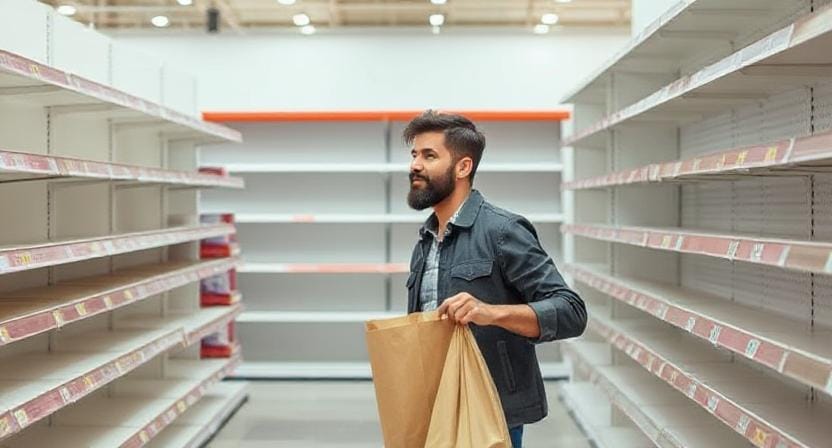
Now that we know about those weak spots, let’s chat about how they mess with our daily lives. Nobody wants to live without their favorite treats!
Imagine waking up one morning and finding out your go-to coffee brand is out of stock for weeks. Shipments are late. It’s like searching for Bigfoot just to get your caffeine fix! You’d be wide-eyed, wondering if the universe was playing tricks on you.
This kind of thing affects more than just coffee. It hits basic needs like food and medicine too. When stuff goes wrong, panic buying happens faster than a bad reality TV show marathon. People rush in, grabbing everything they can find until stores look like they’ve been hit by a cyclone made of shopping carts.
It’s not just annoying; it makes life really tough for families who need these things every day. Imagine a parent trying to feed their kids or keep them healthy when shelves are empty. That’s stress no one should have to deal with.
We all want our little comforts—like that perfect cup of coffee or a cozy dinner at home. When supply chains break down, it feels like someone pulled the rug out from under us. We end up worrying more than we should.
Talking about this helps us understand what’s going on around us. Maybe we can plan better or find ways to help each other when things get tricky!
Personal Solutions: How to Stock Up Smartly
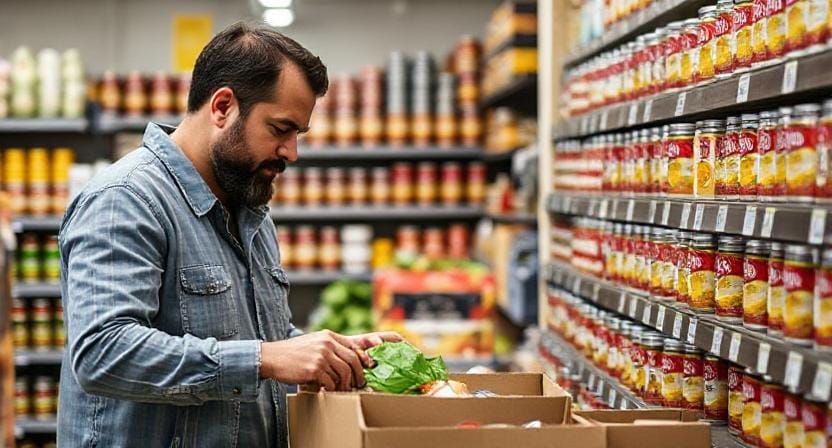
Now that we’ve discussed about issues, let’s look at some ways to remedy them. You don’t have to act like the world is ending while you get ready. Just be smart about what you need!
Start with foods that don’t go bad quickly, like canned products or dry noodles. Those stay longer than most marriages between famous people! You may get a lot of beans, soup, and even some tasty sauces. They are wonderful for quick lunches when you’re busy.
It’s also important to change out your materials! Check what you have every now and again. It’s not fun at all to find old granola bars hidden behind newer snacks when you have to raid your cabinet in an emergency. Believe me, no one likes stale snacks, especially campers who just want something crunchy to eat after a long hike.
You could also think about adding some dishes that are easy to create. Rice and quick oatmeal are two things that can save your life. You can make them quickly and easily.
And if you’re feeling nice, you may give some of your treasure to friends or neighbors who need it. Helping each other out feels nice!
When something unexpected happens, everyone feels better if they have planned ahead. A little planning can go a long way toward putting those worries at away!
Making Connections in Your Area
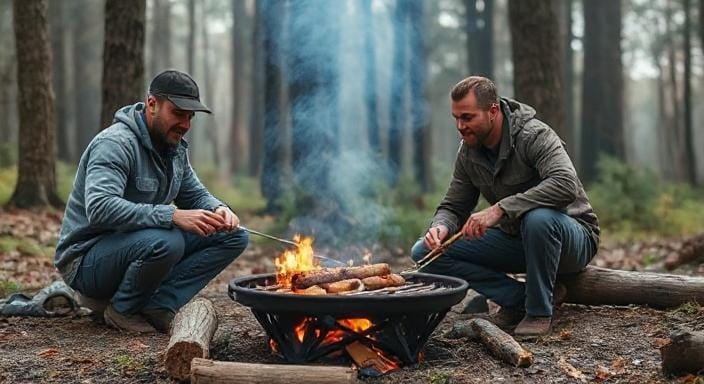
It’s a good idea to get to know people in your region. Think about it. It’s quite helpful to know who grows your food or where to find critical things when major retailers run out. It’s like having a hidden map that tells you what to do when things become tough!
This is great for farmers’ markets. You can meet nice people who care about the same things you do and get fresh fruits and vegetables. Also, talking to the person who raised your tomatoes is a unique experience. It seems more personal, doesn’t it?
Small businesses frequently do better in rough times than big ones because they depend on local support instead than massive supply chains that might break easily. So why not put money into them? Buying something from a local store helps your community grow. And let’s be honest: who doesn’t like finding cool things that aren’t in every store?
You can also tell entertaining stories over the campfire about how you helped local businesses. Think about how you could tell your friends about the great little bakery down the street or how kind the farmer was when he told you how to produce herbs.
Making these connections makes life better and helps everyone feel more connected. You never know when those connections will be useful!
Getting Different Kinds of Supplies
Let’s talk about how to get information from different places. This isn’t only for money; it works for food and other things too! If you’re feeling brave, why not try some other brands? You could even grow some herbs in your own home. Think of how nice it would be to have fresh basil for your spaghetti sauce. You feel like a little chef in your own kitchen, and it tastes great!
It’s easy and entertaining to grow herbs. You don’t need a lot of space. A simple pot on the windowsill can do the job. It feels amazing to watch them grow, doesn’t it? Also, it saves you money because fresh herbs can be expensive at the shop.
Don’t forget to shop online! Hasn’t it blown up lately? A lot of companies now offer subscriptions. You can have everyday things brought right to your door. That’s so cool! Sometimes you might have to wait a little longer due of those annoying problems in the supply chain. But waiting for something great might make it feel like a surprise when it gets there!
Changing where you buy stuff helps keep life interesting and makes sure you always have what you need. Also, testing new brands or products can help you uncover new favorites! You never know what tasty treats or amazing devices are out there simply waiting for you to find them.
Keeping Up to Date
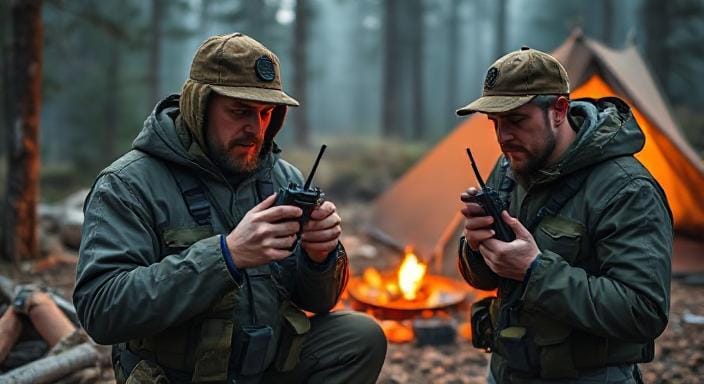
Lastly, and this might be the most important thing, keep up with the news! When you know about anticipated shortages or problems ahead of time, you won’t be surprised when you’re camping at home and watching reruns of old comedies (which sounds lovely).
Stay up to date on the news from reliable sources regarding current events that could affect trade policies or the way goods are moved around. Every little bit counts.
Let’s see… Who knows? There may soon be apps that let you see where things are available based on where you are. It would be like Tinder for food!
Okay, let’s finish this up. Get ready!
I realize I sound like a teacher right now. But knowing about problems in the supply chain can help us feel more in charge when things become tough. While we eat our favorite snacks, it’s like having a secret weapon!
It’s important to plan ahead. Make a list of what you need and buy it wisely. Get those tasty treats that don’t go bad quickly. You don’t want to be caught without your favorite chips when you suddenly want a snack, do you?
It’s also important to make contacts in your community. Getting to know local farmers or small businesses can make a big difference. When the larger retailers run out of things faster than ice cream on a hot day, they usually have what you need. Also, it’s nice to help out local businesses.
It’s also helpful to change where you get things. Try out different brands or buy something you adore online. It keeps things interesting and makes sure you don’t get stranded if one place runs out.
We’re all in this together! We will be ready for everything that comes our way if we plan ahead and make sensible choices. And hey, we can have some nice snacks along the way! How much fun is that?
Frequently Asked Questions
1. What causes supply chain disruptions?
Supply chain disruptions can be caused by natural disasters, factory shutdowns, political conflicts, pandemics, or transportation delays. Since products often travel long distances before reaching stores, any issue along the way can create shortages.
2. Why do store shelves sometimes go empty?
Empty shelves are usually the result of delayed shipments or high demand. When people panic buy or when supply routes are disrupted, stores may run out of everyday products like food, medicine, or household goods.
3. How can I prepare for supply chain problems without panic buying?
The best approach is to buy a little extra over time instead of clearing shelves. Focus on long-lasting foods like rice, pasta, and canned goods, and slowly build a small emergency supply so you’re ready without contributing to shortages.
4. Why is rotating stored supplies important?
Rotating supplies ensures the food and items you store don’t expire. By using the oldest products first and replacing them regularly, you avoid waste and always have fresh backup items available when you need them.
5. How can local connections help during shortages?
Local farmers, small businesses, and community groups often have access to resources when big retailers run out. Building relationships with them gives you alternative sources for food and supplies during disruptions.
6. What are some smart ways to diversify where I get supplies?
You can try alternative brands, shop at smaller stores, use online delivery services, or even grow simple foods like herbs at home. Having multiple shopping options reduces your risk of being affected by a shortage.
7. How can I stay informed about upcoming shortages?
Stay updated through trustworthy news sources, local community groups, and government alerts. The more aware you are of global and local events, the easier it is to prepare early and avoid last-minute stress.
Suggested Resources:
Understanding Supply Chain Vulnerabilities
https://www.investopedia.com/terms/s/supplychain.asp
The Importance of Local Food Systems
https://www.localharvest.org/about.jsp
How To Prepare for Emergencies
https://www.ready.gov/make-a-plan

Kevin Collier is a seasoned outdoor enthusiast and writer for Trekbug.com, specializing in outdoor adventures, survival strategies, and prepping insights. With a deep love for nature and a commitment to self-sufficiency, Kevin empowers readers to embrace the wilderness confidently. He shares valuable tips, practical techniques, and inspiring stories, helping both novice and experienced adventurers develop essential skills for surviving and thriving in the great outdoors.





